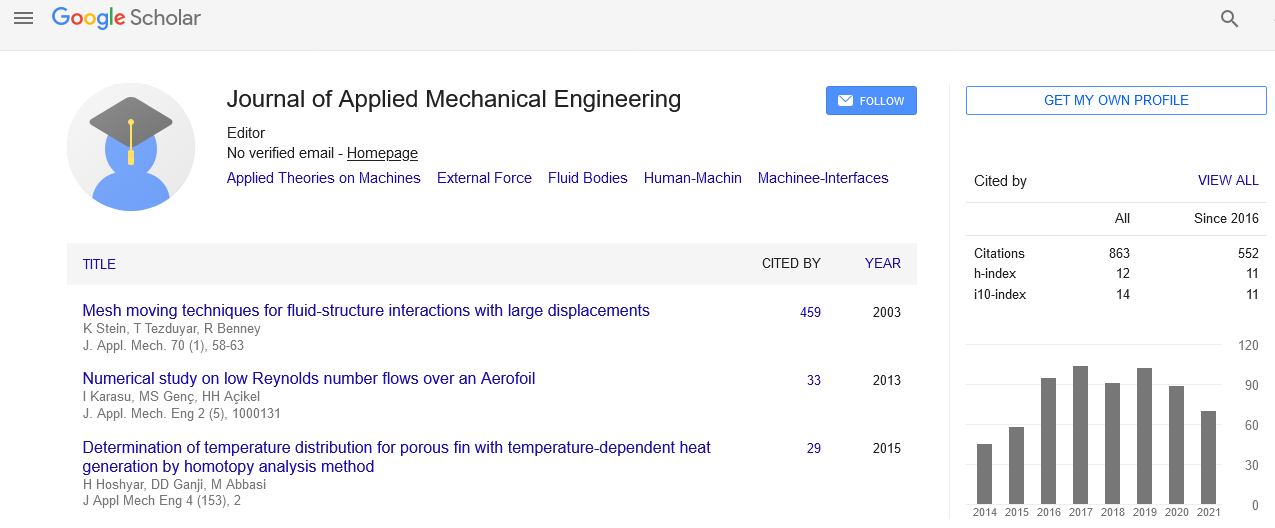Indexed In
- Genamics JournalSeek
- JournalTOCs
- CiteFactor
- RefSeek
- Hamdard University
- EBSCO A-Z
- OCLC- WorldCat
- Publons
- Google Scholar
Useful Links
Share This Page
Journal Flyer

Open Access Journals
- Agri and Aquaculture
- Biochemistry
- Bioinformatics & Systems Biology
- Business & Management
- Chemistry
- Clinical Sciences
- Engineering
- Food & Nutrition
- General Science
- Genetics & Molecular Biology
- Immunology & Microbiology
- Medical Sciences
- Neuroscience & Psychology
- Nursing & Health Care
- Pharmaceutical Sciences
Heat transfer enhancement by corona discharge
Global Summit and Expo on Fluid Dynamics & Aerodynamics
August 15-16, 2016 London, UK
Yeng Yung Tsui
National Chiao Tung University, Taiwan
Scientific Tracks Abstracts: J Appl Mech Eng
Abstract:
Both theoretical and experimental procedures are employed to study the effect of corona discharge on heat transfer over a plate. The heated plate is grounded to form the collecting electrode. A thin copper plate is perpendicular to the collector and acts as the emitting electrode. A numerical procedure based on finite-volume methods is developed to analyze the electric and flow fields. Good agreements are obtained by comparing numerical predictions with analytical solutions for 1-D, 2-D and 3-D discharge problems. The experimentally determined current-voltage relations are used as boundary conditions in simulations. Heat transfer is enhanced by the ionic flow due to the corona discharging, which entrains more air to form a stagnation flow onto the heated collecting plate. Differences between predicted and measured temperatures are more significant when the applied voltage is low. This is mainly due to the heat loss from the heated plate which appears in the experiments but not accounted for in numerical simulations. The heat loss is relatively minor as the applied voltage increases, resulting in better agreements. It is found that the induced electric currents are high for smaller inter-electrode gap, leading to greater corona effect. However, the applied voltage allowed before breakdown of the corona discharge is higher for large gap, giving better heat transfer enhancement. This indicates that the inter-electrode distance and applied voltage need to be optimized to achieve the best performance.
Biography :
Yeng Yung Tsui has completed his PhD and Research Assistant work in 1987 from Imperial College. He joined the faculty of National Chiao Tung University, Taiwan ROC since then. He is currently a Full Professor in the Department of Mechanical Engineering. He was heavily involved in the development of CFD. His current interestes include modeling of two-phase flows and electrohydrodynamics.
Email: yytsui@mail.nctu.edu.tw

